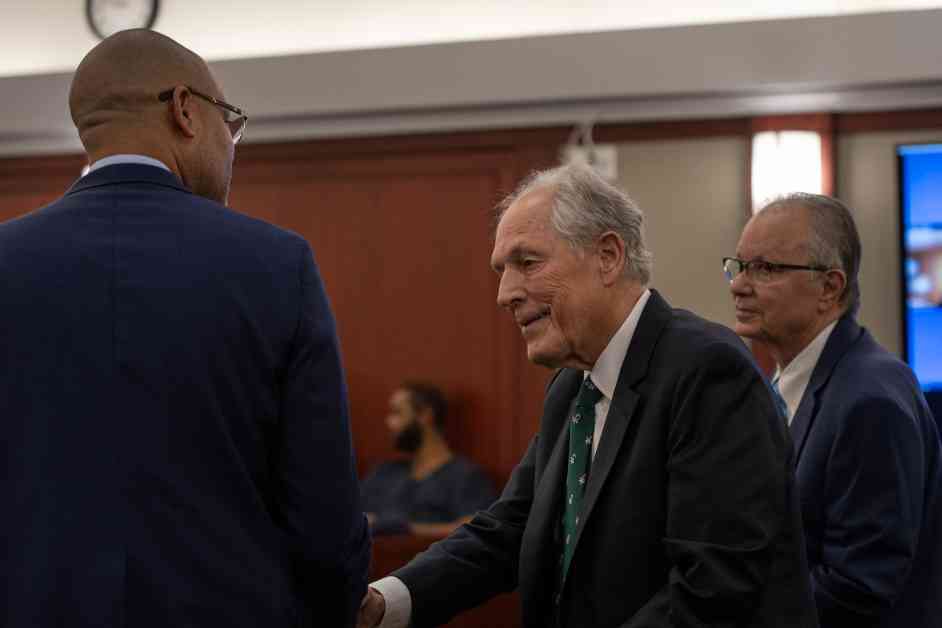A recent ruling by Judge Mary Kay Holthus in Clark County, Nevada, has resulted in the dismissal of charges against six Nevada Republicans who submitted an invalid slate of electoral votes for former President Donald Trump in 2020. The judge determined that Clark County was not the appropriate jurisdiction for the case, leading to the charges being dropped.
During a hearing at Clark County District Court, Judge Holthus expressed her doubt regarding the state prosecutors’ arguments that Clark County was the suitable location to hear the case. The electors’ attorneys contended that Carson City or Douglas County would have been more appropriate venues due to the locations of the signing ceremony and the origin of the fake elector documents, respectively.
Following the ruling, Nevada Attorney General Aaron Ford expressed disagreement with the judge’s decision and announced plans to appeal to the state Supreme Court. The trial set for January has been put on hold pending the outcome of the appeal. However, due to a three-year statute of limitations expiring in December, the state is unable to refile the case in a different jurisdiction.
The dismissal of the case in Clark County is significant as it marks the first time a legal action related to the submission of false electoral votes by the Trump campaign has been dropped. Similar prosecutions are ongoing in other swing states where similar efforts were made to submit fraudulent elector slates.
The six defendants involved in the case faced indictments on two counts each, including offering a false instrument for filing and uttering a forged instrument. These charges carry potential prison sentences ranging from two to nine years.
The decision to dismiss the case highlighted the importance of jurisdiction in legal proceedings, with Judge Holthus emphasizing that Clark County was not the appropriate venue. The arguments presented by both the prosecutors and the defendants regarding the jurisdictional aspects of the case were carefully considered before the ruling was made.
The dismissal of the charges in Clark County has brought an end to a complex legal battle that involved allegations of withheld evidence and political motivations. The case had national implications and drew attention to the challenges of prosecuting individuals involved in election-related offenses.
While the validity of the charges and the constitutionality of the allegations were not directly addressed in the ruling, the legal teams on both sides had raised arguments concerning the intent and nature of the fake elector scheme. The dismissal of the case on jurisdictional grounds meant that these arguments were not fully explored in court.
Overall, the dismissal of the Nevada fake electors case due to lack of jurisdiction underscores the importance of legal procedures and the complexities involved in prosecuting election-related offenses. The legal battle that unfolded in Clark County serves as a reminder of the challenges faced in addressing such cases and the need for clarity in determining the appropriate jurisdiction for legal proceedings.



